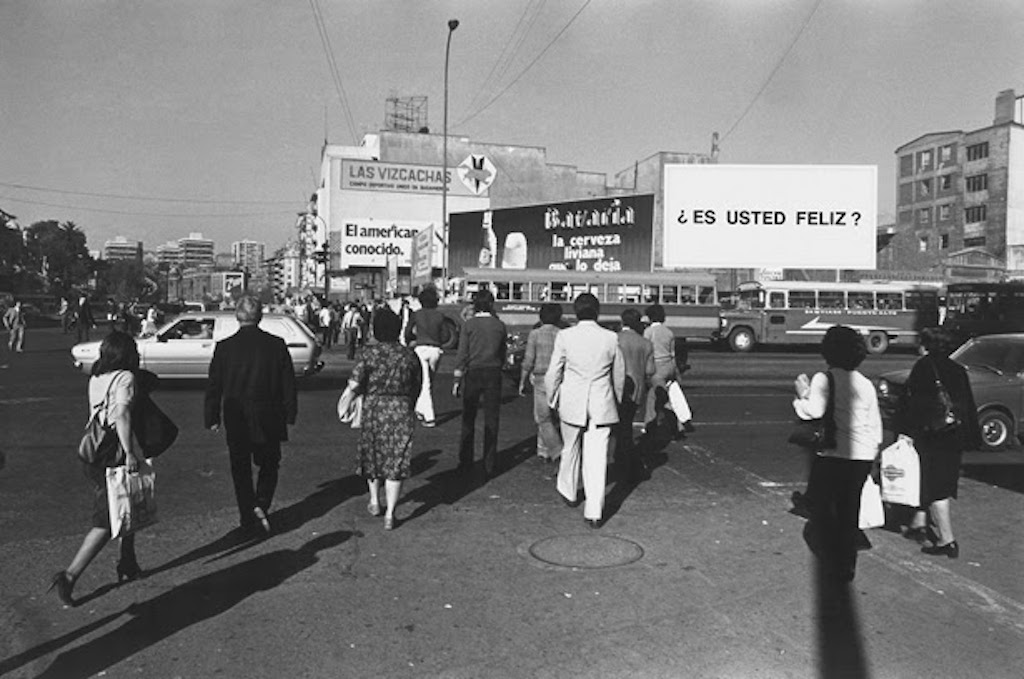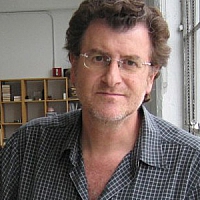
© Alfredo Jaar
Expositions du 21/11/2014 au 1/3/2015 Terminé
Parque de la Memoria 6745 Costanera Norte Rafael Obligado Avenue, C1428DAA Buenos Aires Argentine
Parque de la Memoria - Monument to the Victims of State Terrorism presents Estudios sobre la Felicidad (Studies on Happiness), the first solo exhibition of Alfredo Jaar in Argentina. The exhibition comprises a large number of early works produced in Chile between 1973 and 1981, many of which explore the possibility and difficulty of representations in public space under a military dictatorship. It is the first comprehensive survey that focuses exclusively on this particular body of work.Parque de la Memoria 6745 Costanera Norte Rafael Obligado Avenue, C1428DAA Buenos Aires Argentine
The exhibition also includes a new, site-specific work created by Jaar specifically for Parque de la Memoria. The installation, titled Punto Ciego (Blind Spot), is a memorial dedicated to the 30,000 victims of the military dictatorship in Argentina and their families. This work will mirror, across the Andes, La Geometria de la Conciencia (The Geometry of Conscience), a memorial by the artist dedicated to the victims of Augusto Pinochet's dictatorship that was inaugurated in Santiago in 2010 by president of Chile Michele Bachelet.
Alfredo Jaar is an artist, architect, and filmmaker whose installations and public interventions have earned him international acclaim throughout the world. Using a wide range of contemporary artistic media, the artist's work focuses on the social and ethical responsibilities of art, culture, and people. Alfredo Jaar's practice stems from the careful methodology he developed as an architect; a systematic and thorough analysis of the backgrounds and effects of concrete events and situations. His early works from the 1970s already dealt with forms of resistance in public and semi-public spaces, thus criticizing conditions in Chile while avoiding censorship. After Jaar moved to New York in 1982, from where his international artistic career took off, he continued to apply these poetic methods originally developed and tested in his home country.
Estudios sobre la Felicidad (Studies on Happiness) at Parque de la Memoria focuses on Alfredo Jaar's rarely displayed early works: highly political interventions in public space that were produced in Chile under Pinochet's military dictatorship, as well as some later works dealing with the memory of those violent times. The exhibition includes key pieces from the beginnings of Jaar's artistic career, such as 11.09.73.12.30, which indicates the exact date and time of the bombing of the Presidential Palace during the Coup d'Etat, and Studies on Happiness, an outstanding artistic and sociological project involving a series of street surveys asking passersby to respond to the apparently innocent question Are you happy?, thus inducing them to react and reflect on the repressive context of their daily life. The final stage of this project consisted of photographic and video documentation as well as billboards displayed throughout Santiago.
At Parque de la Memoria, Alfredo Jaar will also be exhibiting, among many other works, Telecomunicación, in which he re-enacted in Santiago the gestures of Northern Ireland protesters; Chile 1981, before leaving, his farewell work before moving to New York consisting of a row of miniature flags running down a sand dune portraying Chile's division during Pinochet's military dictatorship; Buscando a Kissinger, Nothing of Very Great Consequence and Manhattan's Milosevic, a series of works that focuses on the United States foreign policy's continuous interference in Latin American affairs, and his celebrated work A Logo for America, a 30-second computer animation presented in 1987 on a light-board in Times Square in which he questioned the United States' appropriation of the name of an entire continent at the expense of Canada, Central and South America.
A catalogue will be published including contributions by Patricio Fernández, Andrea Giunta, and Florencia Battiti.


